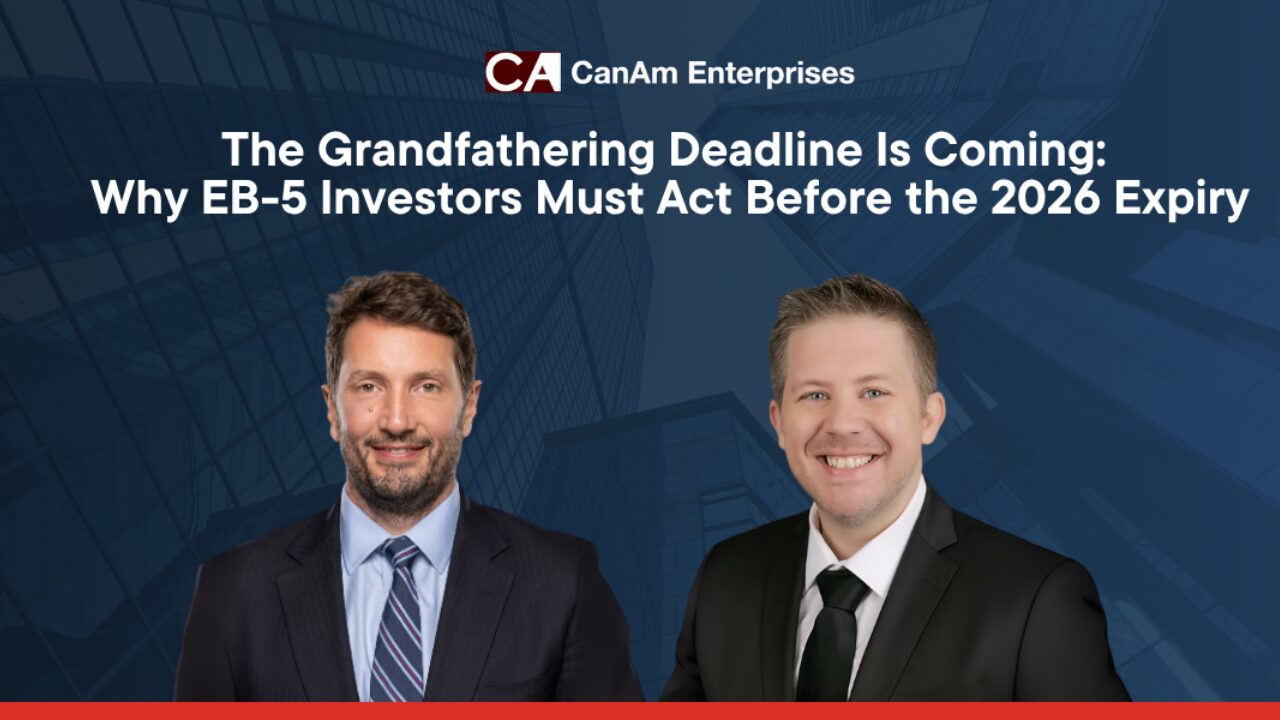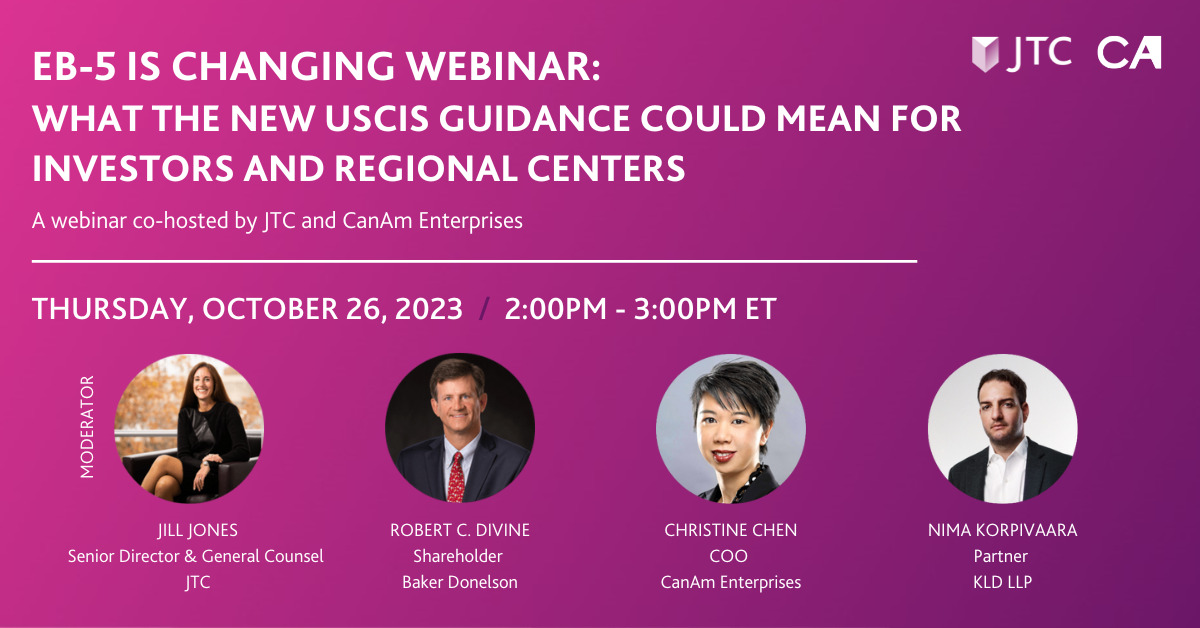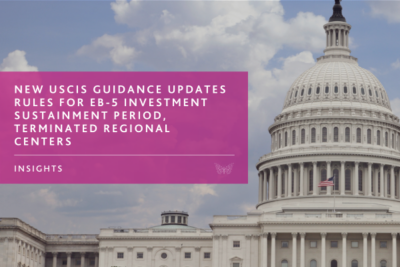Learn from real-life EB-5 investor case studies and how poor disclosure and cross-border planning led to avoidable financial setbacks.
Real-World Case Studies: How Poor Disclosure Can Cost You Six Figures
The EB-5 immigration process is a major life decision—and for many investors, it also marks their first exposure to the U.S. tax system. Unfortunately, what you don’t know can cost you. In Part 3 of the CanAm x Navis Wealth series, cross-border advisor Paul Fegan shares real-world case studies of families who overlooked critical financial steps and paid the price.
Watch the video:
Missed earlier parts? Start with Part 1 and Part 2
View the full Navis webinar recap here
Disclosure Isn’t Optional—It’s the Foundation of Compliance
One of the biggest mistakes new green card holders make is failing to fully disclose their global financial holdings. In some cases, the omission is unintentional—many foreign financial institutions don’t even provide the documentation needed to meet U.S. standards. But the consequences can still be severe.
As Paul Fegan explains:
“We’ve seen EB-5 families lose hundreds of thousands of dollars because they didn’t disclose a pension, foreign property, or even a local checking account. And when the IRS comes calling, they don’t care whether it was an honest mistake.”
Case Study #1: The Hidden Pension
The Scenario:
An EB-5 investor from Europe failed to mention a private employer pension from a job they left 20 years ago. The pension automatically matured shortly after they became a U.S. tax resident.
The Result:
- Taxed as ordinary income at U.S. rates
- Triggered additional reporting requirements
- Caused a knock-on effect with FBAR and Form 8938 filings
Read about the Comparison of Form 8938 and FBAR requirements here
Lesson:
Even dormant or forgotten financial accounts need to be identified and disclosed. Pre-immigration audits matter.
Case Study #2: Inherited Property Becomes a Tax Liability
The Scenario:
A family in Asia inherited property valued at over $1.5 million. They had no intention of selling it and didn’t think it had to be reported.
The Result:
- Required reporting under Form 3520 and 8938
- Sale of the property later triggered capital gains
- Lack of proper basis documentation led to overpayment of taxes
Lesson:
Inherited assets can create both income and reporting obligations—even if no money is changing hands initially.
Case Study #3: The Bank That Closed Its Doors
The Scenario:
One investor had over $500,000 in an overseas bank that shut down due to financial instability. The account was not disclosed on their FBAR or FATCA filings because “it no longer existed.”
The Result:
- IRS penalties for non-disclosure
- Significant legal and accounting fees to resolve the issue
- Funds may still be recoverable, but at high cost and stress
Lesson:
If the account existed during the tax year—even briefly—it must be disclosed. Closure does not exempt it from reporting.
Cross-Border Disclosure Checklist for EB-5 Investors
- Identify all pensions, retirement accounts, and trusts—even if inactive
- Disclose real estate ownership and rental income
- Report inherited property or foreign gifts over $100,000
- Include all bank and investment accounts on FBAR and FATCA forms
- Work with a tax advisor to document cost basis and historical value
“The IRS doesn’t grade on intent—they grade on completeness,” says Fegan. “Honest mistakes are still mistakes, and the penalties are real.”
FAQ: Common EB-5 Disclosure Questions
Q: What’s the difference between FBAR and FATCA?
FBAR (FinCEN Form 114) reports foreign bank accounts; FATCA (Form 8938) reports foreign financial assets. Many investors must file both.
Q: What if I didn’t know I needed to report something?
The IRS has streamlined programs for voluntary disclosure, but they must be pursued proactively—before an audit.
Q: Are small accounts exempt?
Only accounts below $10,000 combined across all foreign accounts may be exempt. But even “small” accounts can tip the threshold.
Conclusion: Mistakes Are Expensive—Planning Is Not
The message from these case studies is clear: incomplete disclosure is one of the costliest—and most preventable—mistakes EB-5 investors can make. From pensions and property to old bank accounts, anything that touches your financial footprint abroad must be documented and disclosed.
Cross-border planning isn’t just about saving on taxes—it’s about ensuring your transition to life in the U.S. goes smoothly and without legal or financial disruption.
Coming Up Next:
In Part 4, we turn to estate planning. Discover how U.S. residency changes the rules for inheritance, and what tools like QDOTs and dual wills can do to protect your family’s legacy.








